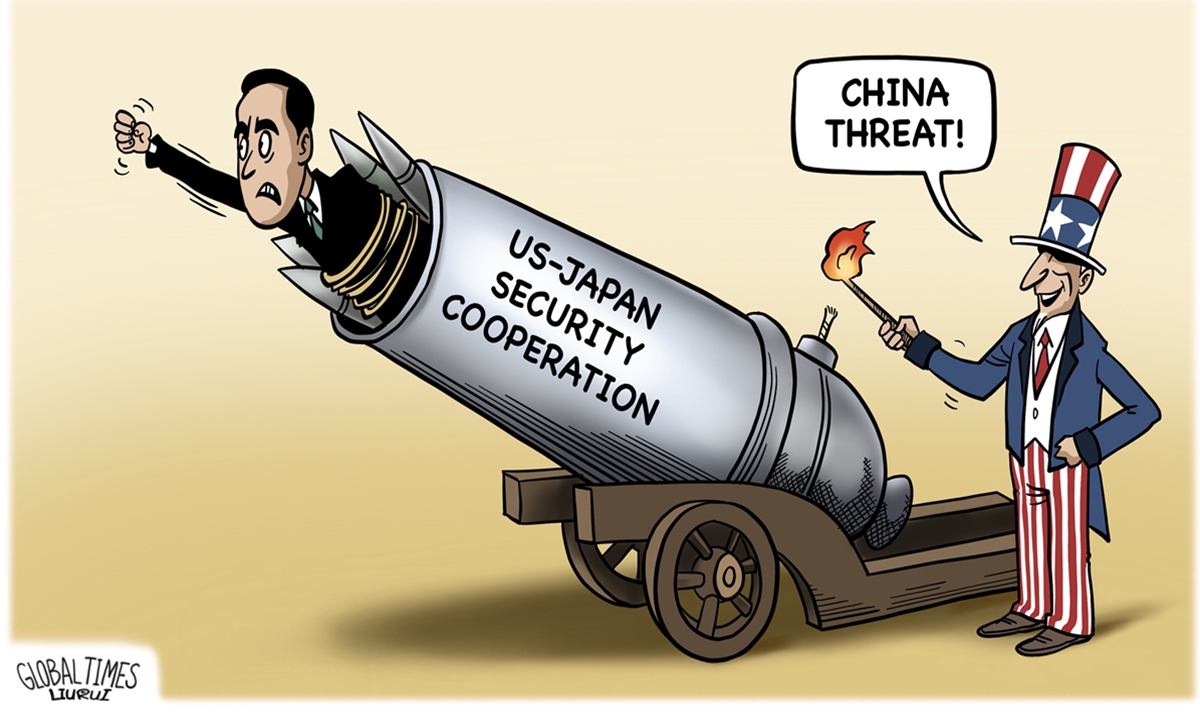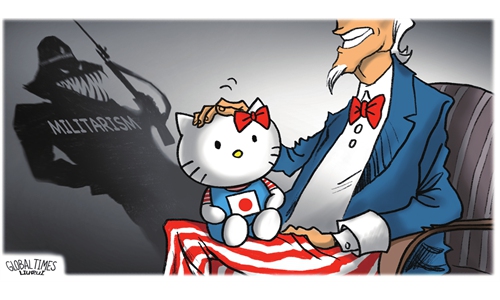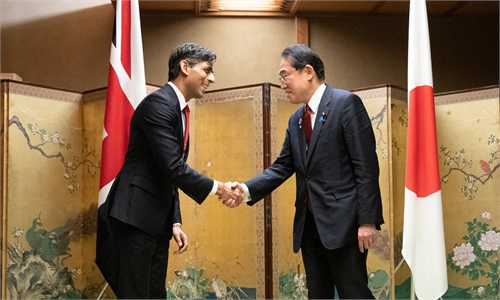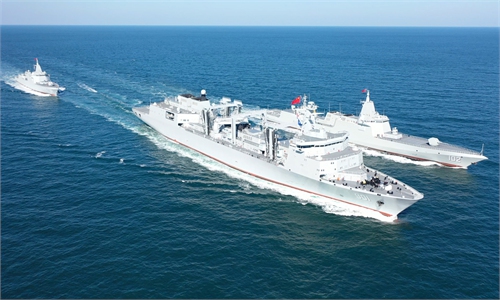
Illustration: Liu Rui/GT
This year marks the 45th anniversary of the signing of the Sino-Japanese Treaty of Peace and Friendship but the current status of China-Japan relations is seemingly at a 45-year low. High-level visits between China and Japan are intermittent and sometimes unpleasant. The Japanese government frequently targets China on the East China Sea, South China Sea, Taiwan island, Xinjiang, Xizang, Hong Kong and other core issues of China. As a result, China-Japan relations have been regressing, instead of improving.
In recent years, Japan has sought military expansion, and is keen to advocate the "Indo-Pacific Strategy," attempting to contain China with its allies. The G7 Hiroshima Summit shows that Japan is more active as a provocateur on China-related issues. Japanese Prime Minister Fumio Kishida said that Japan wants "constructive and stable" ties with China, but this is more of a diplomatic rhetoric to stabilize China.
Why does Tokyo insist on such an aggressive attitude? First, it comes from Japan's enhancements in its military power; second, it comes from the basic consistency of the Japanese government's stance toward China, that is, their self-identified "political correctness"; third, it comes from the "violent multilateralism" that is developing between Japan and its allies against China. This dangerous tendency can also be found in Japan's history. Regrettably, some people in Japan, who enjoyed the benefits brought about by the Sino-Japanese Treaty of Peace and Friendship, are engaged in activities that have harmed the two countries' relations.
The background and reasons for the regression of Japan's policy toward China are complex, with both internal and external factors. These include the increasing predominance of the political right and social conservatism in Japan, and diplomacy is an extension of domestic affairs. Also, there is the factor of Japan's desire to reap profits from the China-US conflict, as well as Japan's heightened fear with the widening gap between China and Japan in national power.
Meanwhile, the dispute over the Diaoyu Islands has become a major obstacle in improving China-Japan relations and improving Japanese public opinion toward China. Influenced by the Japanese right-wing politicians on the issue of Diaoyu Islands and the East China Sea, Japanese society has become less friendly to China. Japanese politicians and media have been criticizing China's "aggressive behavior" and "intrusion into Japan's territorial waters." Such brainwashing propaganda has played an extremely bad role in history and will now seriously affect the Japanese public's perception of China.
Since the onset of the 21st century, there has been a positive correlation between Japan's political right deviation and the deterioration of China-Japan relations. The 2005 visit to the Yasukuni Shrine, which enshrines Japan's infamous Class-A war criminals who symbolized Japan's war atrocities and militarism during World War II, by right-wing prime minister Junichiro Koizumi led to a serious deterioration of bilateral relations. The sense of "victimhood" of Japanese society, who mistakenly thought they were "invaded," was gradually transformed into the sense of military confrontation through the national security strategy, and coupled with the rising strategic conflict between China and the US, the Diaoyu Islands dispute has also became a means for the US to instigate Japan against China.
In order to promote the constructive transformation of Japan, it is necessary to make comprehensive and systematic layout. Otherwise, no matter who comes to power in Japan, the tone of the national security strategy and the stalemate in China-Japan relations are difficult to fundamentally change.
The author is vice dean of the Institute of Modern International Relations at Tsinghua University. opinion@globaltimes.com.cn



